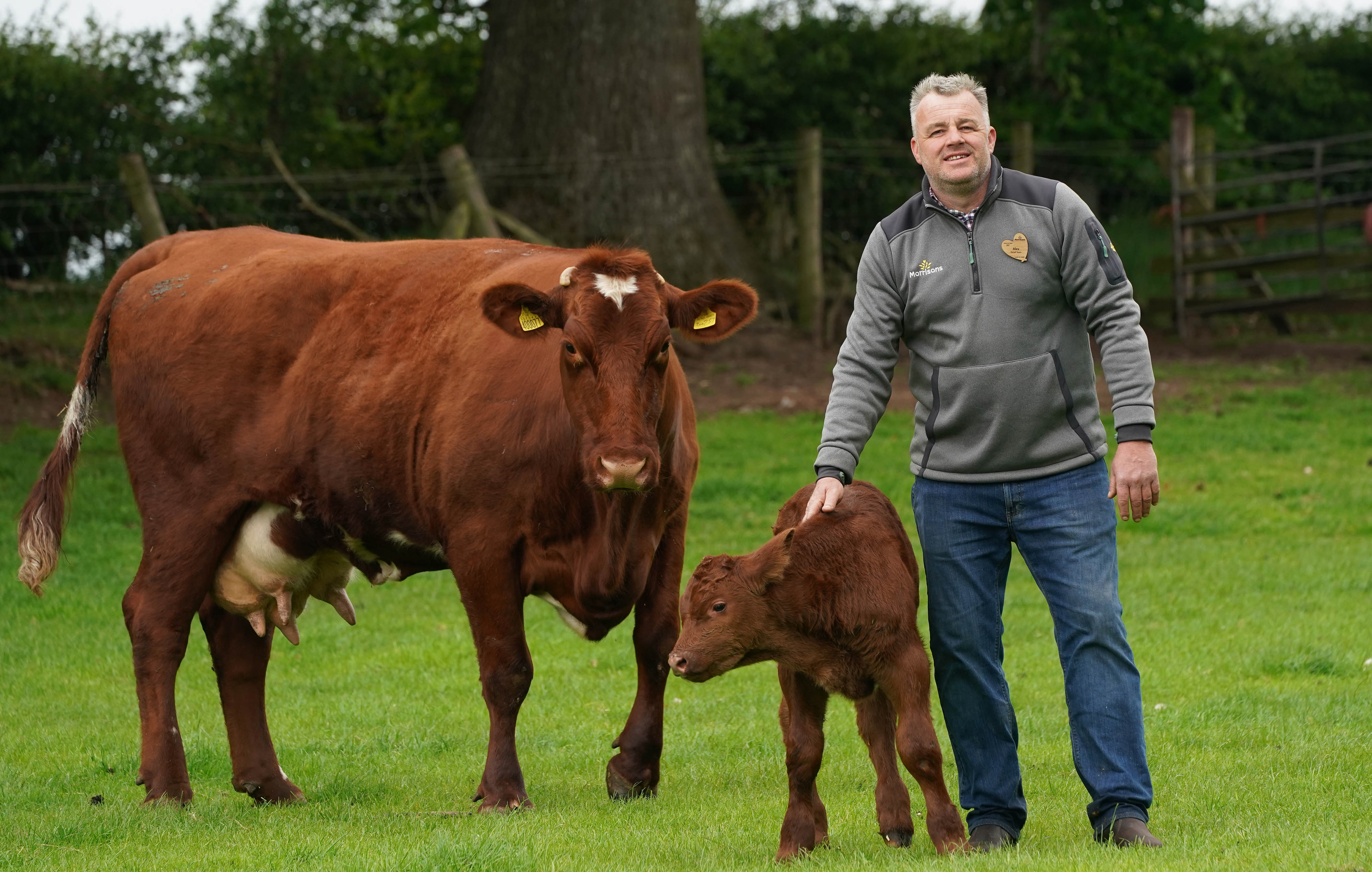
- Exclusive partnership with Sea Forest and Myton Food Group to introduce seaweed-based livestock feed to help fast-track lower carbon beef products in Morrisons -
- The move supports Morrisons ambition to achieve net zero agriculture emissions from its directly supplied farms by 2030 -
Morrisons has partnered with Sea Forest, an Earthshot finalist and science-based environmental technology company, to help reduce greenhouse gas emissions from beef cattle.
Sea Forest will work with Myton Food Group, Morrisons’ manufacturing arm, exclusively to supply SeaFeedTM - its methane abating livestock feed - to help fast track the introduction of lower carbon beef products such as mince, burgers, steaks and joints in Morrisons. Approval for the process is being worked through, but if successful customers should see products on the shelf in Morrisons by 2026. The partnership supports Morrisons ambition to achieve net zero agriculture emissions from its directly supplied farms by 2030.
Finalists for The Earthshot Prize, a prestigious award launched by Prince William in 2020, Sea Forest have already collaborated with Australian burger chain Grill’d* to introduce a beef burger made from grass-fed black Angus cattle that produces 67% less methane emissions. When the SeaFeedTM product is included as a small fraction of the animals’ diet (approximately 0.5%), it is scientifically proven to reduce methane production without impacting the taste or quality of beef.
Sophie Throup, Technical and Sustainability Director at Myton Food Group for Morrisons, said: “As British farming's biggest direct customer, we are well placed to support the farmers we work with and help them farm more sustainably. This partnership supports our ambition to have net zero agriculture emissions by 2030.
“Having our own livestock experts with direct relationships with farmers enables us to make changes quickly, meaning that once our trial is complete and we have approvals in place, we can develop our lower carbon beef products and help support the drive to lower emissions from cattle.”
Sam Elsom, CEO of Sea Forest, said, “Distributing our methane-busting solution to one of the most respected retailers and food producers in the UK to reduce livestock methane emissions is a tremendous milestone for Sea Forest. SeaFeedTM has the potential to sustainably feed the planet while tackling one of the most challenging pieces of the climate puzzle. Our trials with beef, dairy and wool producers across Australia and New Zealand have demonstrated excellent results and we are delighted to partner with Morrisons to make a meaningful impact on climate change at an international scale.”
The partnership is the latest step in an innovative research programme by Morrisons and Queen’s University Belfast that is looking at the use of seaweed to help reduce methane production in cattle.
Professor Sharon Huws, Director of Research, Queen's University Belfast, School of Biological Sciences and Institute for Global Food Security (IGF), said: “We are delighted to be working closely with Morrisons and Sea Forest to provide the scientific evidence underpinning the journey towards net zero in the Morrisons beef chain. Innovation is at the centre of the IGFS ethos, and this collaboration is an important example of how our research translates into impact for the sector, and indeed for the health of our planet”.
Morrisons is committed to introducing sustainable products across all areas of the business through lower emissions sourcing and reducing the amount of plastic used. This work forms part of Morrisons ambition to be completely supplied by net zero carbon British farms by 2030 - five years ahead of the market. Last year, Morrisons became the first supermarket to introduce its own carbon neutral egg.
- ENDS –
References:
*https://www.grilld.com.au/gamechanger&sa=D&source=docs&ust=1698162129784447&usg=AOvVaw0b6BjicWk4OcWzP0W-4dXj
Additional notes:
The compounds contained in SeaFeed, which occur naturally in a native Australian seaweed, inhibit the bacteria that produce methane in the complex stomachs of cows, sheep and goats.
Methane is a greenhouse gas that is more potent than carbon dioxide at trapping heat in the atmosphere. It has a shorter atmospheric lifespan than carbon dioxide, but over a 20-year time-period, traps 84 times the heat.
UK agriculture currently accounts for 10 per cent of all UK greenhouse gas emissions. Within this, beef farming is the most emissions intensive. Nearly half of this is due to methane produced by cattle. Feed additives with methane inhibiting properties have the potential to reduce these emissions.